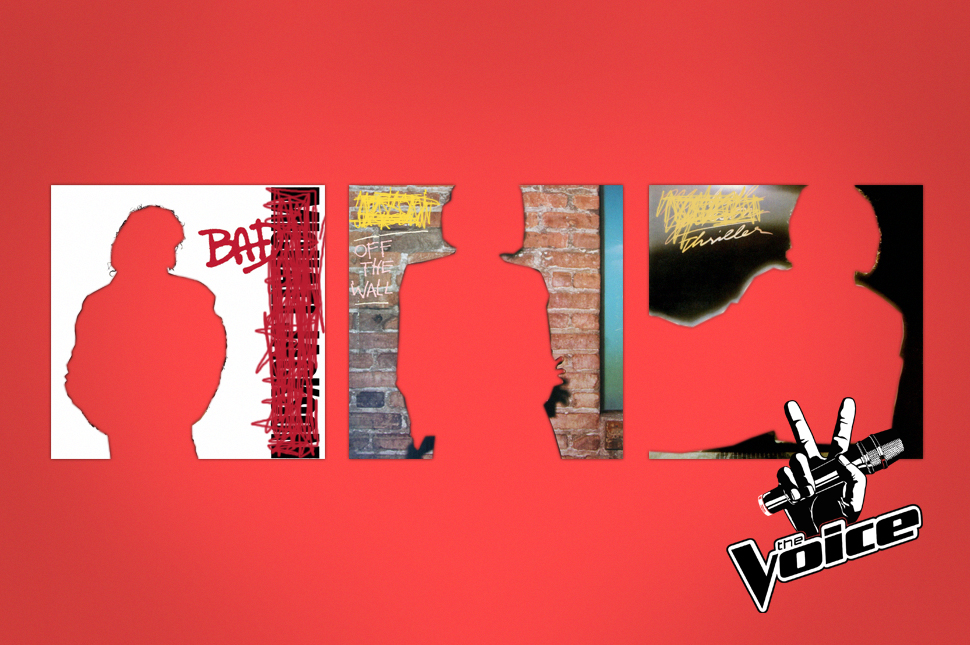© Lauren Baxter 2021.

We need to talk about Michael.
The Voice is arguably the biggest music show currently airing on Australian television. Only there’s something that hasn’t been spoken about this season. On not one, not two, not three but four occasions, judges or contestants chose songs by Michael Jackson.
Bertie Anderson chose Black Or White for his Blind Audition.
Kelly Rowland chose Michael Jackson songs for Amanuael Visser (Man In The Mirror) and Prinnie Stevens (the Jackson 5’s ABC) to sing in the Knockouts.
Boy George chose Dirty Diana for Carlos Velazquez and Akina Maria in the Battles.
Jackson’s name wasn’t mentioned on any one of these occasions. Other artists were credited, spoken about, labelled for what they are. But not Jackson.
Go back and watch the episodes on 9Now. You’ll see what I mean.
It was weird to watch. Unsettling even. Like Channel 9 was trying to tiptoe around the child sexual abuse allegations. Trying to get away with using controversial art by separating the artist from their work. But these are famous songs. Close to a million viewers tuned in to the show each night. They would be well aware of the man behind the music. Hell, even coaches Delta Goodrem, Boy George, Guy Sebastian and Kelly Rowland sang and danced along.
These viewers – consciously or unconsciously – saw the art versus artist debate play out in real-time. So now we have to ask, can art really be separated from the artist? Should it be? Does knowing about the allegations influence the way we see his work? Does removing his name excuse his actions?
When you think about the size of an artist like Michael Jackson, you have to question whether it’s even possible to remove his gigantic figure from these songs. He was one of the biggest musical stars in living memory; Jackson and his work still ignite the same devotion it did when he was alive. He paved the way and inspired so many current artists – would cancelling him involve cancelling those who followed in his footsteps too?
Regardless, it seems impossible to ignore what we saw in Leaving Neverland when it was released earlier in the year. Impossible to ignore the stories of victims Wade Robson and James Safechuck. Of course, these are not new allegations, but with the #MeToo movement maybe we are finally listening.
Perhaps it would be different if they had chosen a Lostprophets song. Would there be outrage if the network screened a Roman Polański film? Should race be brought into the argument? We hear little about cancelling Jimmy Page, Iggy Pop and David Bowie, who all have been documented as having slept with underage groupies: “I slept with Sable when she was 13/Her parents were too rich to do anything/She rocked her way around LA/’Til a New York Doll carried her away” (Look Away, Iggy Pop, 1996).
But “it was a different time”. Sure.
Importantly, when posing these questions, we must remember that this debate does not exist in a vacuum. Nor does the answer to this moral quandary lie in a news article or comments section. These are real victims, real stories. We can philosophically pose questions while sitting on a moral high horse but doing so does not address the root of this issue: a history of systemic abuse within the music industry. A history of men behaving badly. This is an ongoing problem. It’s important that we talk about it so it can be stamped out for good. But can we talk about it properly if we take the name of abusers out of the conversation?
The media exists to educate the public, helping to inform discourse and keep the bastards honest. Channel 9 have seemingly made an intentional and informed decision here. They made a choice to omit his name from the show. Does that now set a precedent for the network going forward? Will other channels follow suit? Should the media have a responsibility to make a stand in cases like this or should it be a personal choice as to whether or not we engage with a certain artist’s work?
Does simply removing credits go far enough? Does it do enough to remind us of the allegations? Does supporting and recreating his art mean we are supporting him as a person? What about all the other people involved with the making of this music? Producers, songwriters, sound engineers, publicists – should they now suffer too?
It really boils down to how we make our consumption as ethical as possible. Maybe that’s a personal choice. Maybe it’s up for media outlets to make a call. Maybe you can enjoy a catchy song without thinking about morality.
Maybe we don’t need to talk about Michael. But we sure as hell need to talk about the victims.
Nine did not respond to The Music’s request for comment.
Original article: Michael Jackson’s Music On ‘The Voice’: Should We Separate The Artist From The Art?